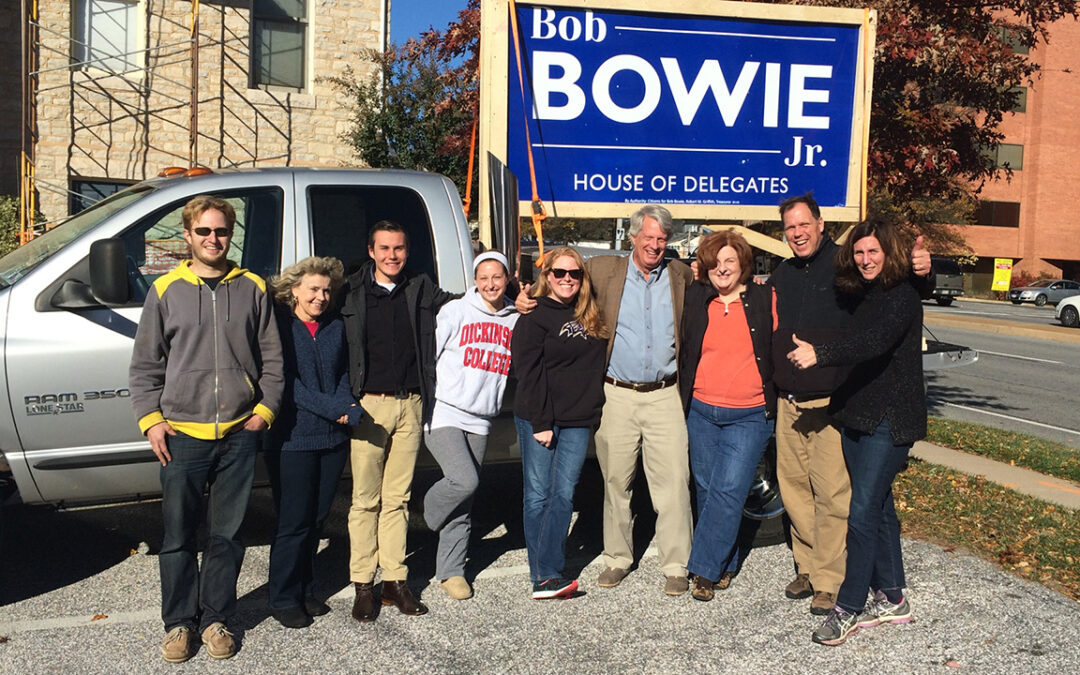
by Robert Bowie, Jr. | Jun 11, 2024 | Featured, Humor, Personal, Politics
Have you ever just stopped in the street and said to yourself, ”Wow, I wish I had that to do over!” and then found yourself exploring even larger questions?
Because of my short-lived political background, I ponder irrelevant questions and worry about them all the time.
I have some regrets.
For me it all happened back in 2014, but it only became clear what my concern should have been about two weeks ago.
Back in 2014, I was asked a question that I couldn’t answer. That was the problem.
Back then, I hated gerrymandering and concluded that the country was getting dangerously divided because of it, so I ran for political office on a theme that ”We must not lose our common ground.”
My strategy would be to find common ground with every person in my divided district and thus bring them together so we could reason together.
Maryland is two-to-one Democrat and the state legislature had crammed as many Republicans as possible into the district where I lived. I am a Democrat but I was sympathetic to my outnumbered Republican neighbors. I consulted the experts and was informed that I had at best of five percent chance of winning as a Democrat in this district.
I jumped right in!
I really believed I would win if I could find some common ground each time I knocked on another door.
I was all in. I contributed my own money to the campaign and I raised over $150,000. Susan and I and a small group of overoptimistic diehards spent that summer and fall knocking on 5000 doors, and debated the three incumbents who raised only around $5,000 together. They did not need the money. They had all been in office for over a decade in this gerrymandered district.
Late one hot summer Sunday morning, it turned out I didn’t know “ common ground” as well as I thought I did. Only about two weeks ago, did it all became clear.
When I knocked on the doors, I always had the same pitch: ”I believe we must find our common ground so we can all talk together.” Then for humor I would add, because I was over 65 years old, that ”if they were worried about term limits, nature would take care of that in my case.” Everybody laughed, and we talked as friends until I was asked whether I was a Republican or a Democrat, at which point the door was slammed in my face.
Of course, I remained optimistic. As I would drive home while the sun was going down, I believed the depth of my commitment would pull me through.
The depth of my commitment was only challenged once, when I could not find “common ground.“
Late in the August heat, I knocked on the door of a well-kept home in a trailer park, which had three steps on either side of the front door.
I knocked on that door and a heavyset woman dresses in a giant muumuu answer the door and after my pitch she announced: “I can’t talk to you right now because I don’t have any underwear on.”
How was I to answer that? For the first time maybe ever, I was speechless.
I couldn’t say, “You don’t need to be wearing underwear to read my materials,” or, “No problem I’ll wait til you put on your underwear.” I was dumbfounded. I could find no common ground.
For almost ten years, I have pondered this interchange. I thought and rethought about my inability to find an answer. I have not hesitated to tell this story to others in the hope that they might suggest something. Then about two weeks ago, a friend of mine had an answer right off the top of his head!
He said, “You forgot your theme. Why didn’t you just say, “That’s okay, I don’t either!”
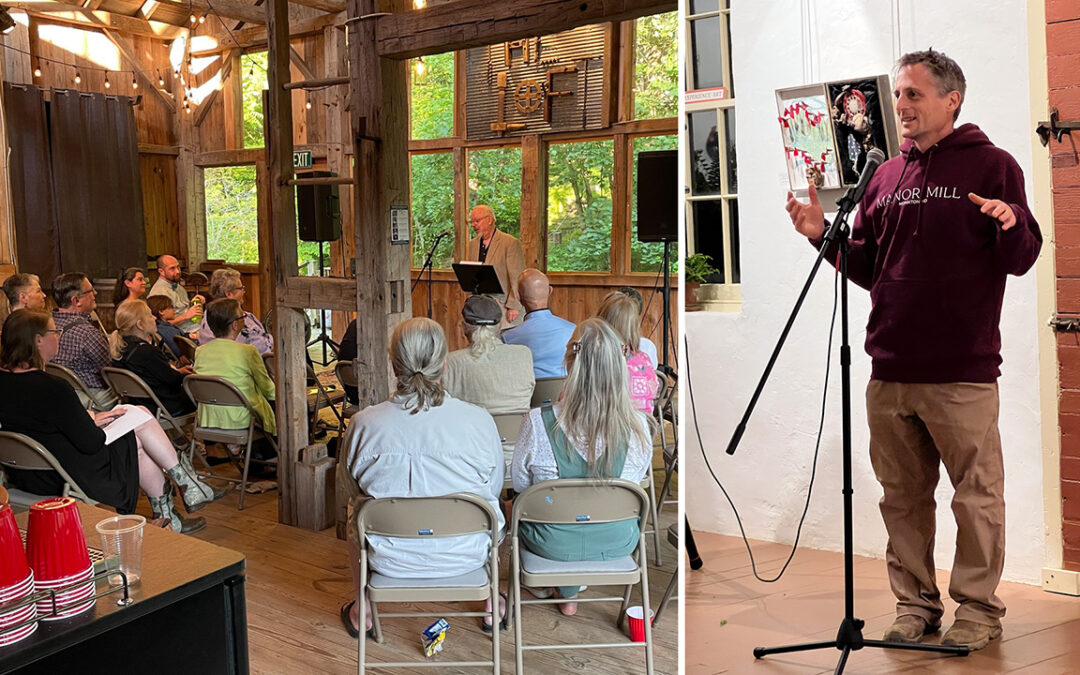
by Robert Bowie, Jr. | May 28, 2024 | Featured, Personal, Poetry
I’ve always been a little shy about confessing my love of poetry.
Over 40 years ago, my love of poetry got into a head-on collision with my decision to be a successful lawyer. This collision was the final confirmation I needed to reenforce my belief that I should probably keep my mouth shut about poetry.
This year, however — in fact, this spring — I have outgrown this conclusion once I appreciated the humor in my mistake and that I wasn’t the center of the universe, which is probably why it took over 40 years.
On Saturday, June 1, in less than a week, we will be celebrating “Poetry Day” at Manor Mill in Monkton, Maryland. Manor Mill is a beautifully reborn pre-revolutionary gristmill on a little tributary off the Gunpowder River. There, Angelo Otterbein, its new owner, has created a center for the creative arts in the middle of the verdant horse country of northern Baltimore County.
For the last year and a half, on the first Monday of every month, Mel Eden and I have run a poetry open mic at the Mill. We start at 6:30 pm with a reading by one or two well established mid-Atlantic poets. Then, after a brief break, we turn to the open mic sign-up sheet, with each poet sharing one poem each, providing a wide variety of work. Then, if possible, we do a second round so each poet has an opportunity to read twice.
This group has grown into an ever increasing source of inspiration and community for both established and upcoming poets from all walks of life. From the beginning, we also set up a poetry class at the nearby Hereford Library for new poets to perfect their chops before they elect to perform. This class has been led by Michael Fallon, a celebrated retired professor of poetry who has taught and published for over 35 years.
Poetry Day on June 1st was created by Mel to celebrate this new artistic community as well as the art and creation of poetry. Mel is also largely responsible for a beautiful professionally published bound book of Manor Mill open mic poems and poets that is scheduled to be available early this September.
Back to my head-on collision, though, which years ago separated my two passions and broke my fragile poet’s heart.
All through law school on Saturday nights I didn’t go out drinking with my friends. Instead, I would cook a Cornish game hen, drink whiskey and listen to one of my extensive collection of recordings of Shakespeare plays.
I kept this eccentric behavior to myself for the most part, except in my second year, I met a Baltimore Sun reporter, Carleton Jones, at our local Maryland Institute of the Arts art student bar, which featured big display panels on the walls where artists were offered a chance to display their work.
Carleton was in his early 70s, I would guess, and it turned out one night we both confessed our love of poetry. Without my knowledge he went to the owner and I was offered a chance to post my poems on the large panels in the bar, normally reserved for art and thereafter Carlton wrote a glowing review in the Sun.
I almost came out of the closet and admitted to myself that I was a poet until an all-important second job interview at a large law firm broke my heart and I went underground again.
In hindsight I was foolish and easily injured but it is funny, so here goes:
At this interview, four lawyers and a senior partner went over my resume and asked me questions until the senior partner took control. I took this as a good sign, particularly when he pointed out that at the end of my resume under “Other Interests” I had included “poetry.“
He asked me, “What is the difference between poetic writing and statutory writing?” I took this as a great final line of inquiry!
“Okay,” I said. “If you want to write a statute to prohibit throwing up on the street you would say, ‘No throwing up on the street’ and then define ‘throwing up.’ But if you were Shakespeare you would say, ‘speaking with a full flowing stomach.’”
I could not have been more excited to be so erudite on a subject I felt I knew quite well, so of course I couldn’t leave it alone.
“If you wanted to forbid fornication,” I continued. “You would write a statute prohibiting fornication and then define fornication, but if you were Shakespeare, you would say, “Making the beast with two backs.’”
I was a little surprised when the senior partner announced that the interview was now over and they would be in touch.
As I went down the elevator I was very proud of myself, but as I walked home the doubt came on slowly. By the time I reached my neighborhood bar, I went in and had a double scotch.
A couple of days later, I got a letter, and jumped to the conclusion that they thought I might not fit in. They wished me well on my future career as a lawyer.
To this day, I remain a proud (now retired) lawyer but I’m now proud to call myself a poet, too.
Thanks to Manor Mill, I have been around poets nonstop for the last year and a half and I have been welcomed. I have made wonderful, lifelong friends and have come to believe that perhaps Mel and I have encouraged future poets to find their voice and sing. These poets are remarkable people. They step out of the grind and observe it for others. They are fun to be with.
I hope you can join us for Poetry Day on Saturday and see for yourself. There’s a full schedule of events at www.manor-mill.com/poetryday.
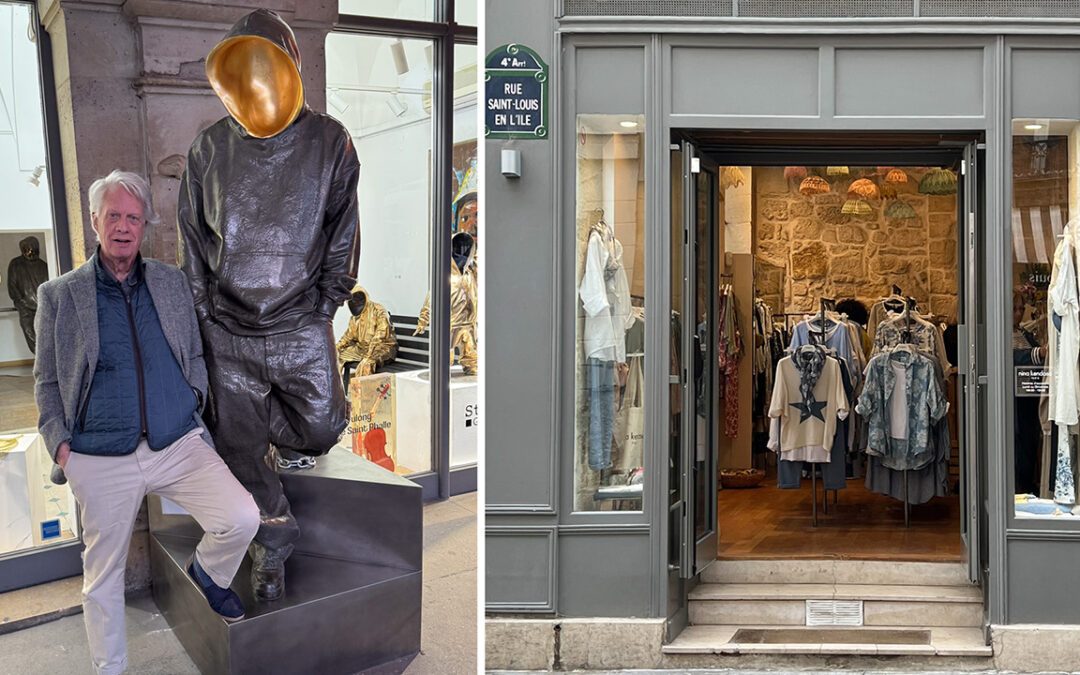
by Robert Bowie, Jr. | Apr 30, 2024 | Featured, Personal, Travel
As we have walked around Paris you can feel the pride everywhere as the city prepares to host the Olympics. That pride is always there but perhaps now it is heightened, most evident in the city where you see the care and detail in the retail efforts. Whether they are the cafés, cheese mongers, or street markets full of fresh fruits and vegetables and fresh cut flowers, there is artistry in the display and even a little bit of competition between the storefronts. They are always careful and creative but some are so odd and distinctive you stop and join the fun.
I stopped by this statue with an indented empty bronze face (even though the photo makes it appear to protrude). Other statues behind the windows sit or stand and have the same hollow faces, empty but with no bronze. To the left is a paint can supported on a base made to stay in place by what it has already poured. Gold medal!

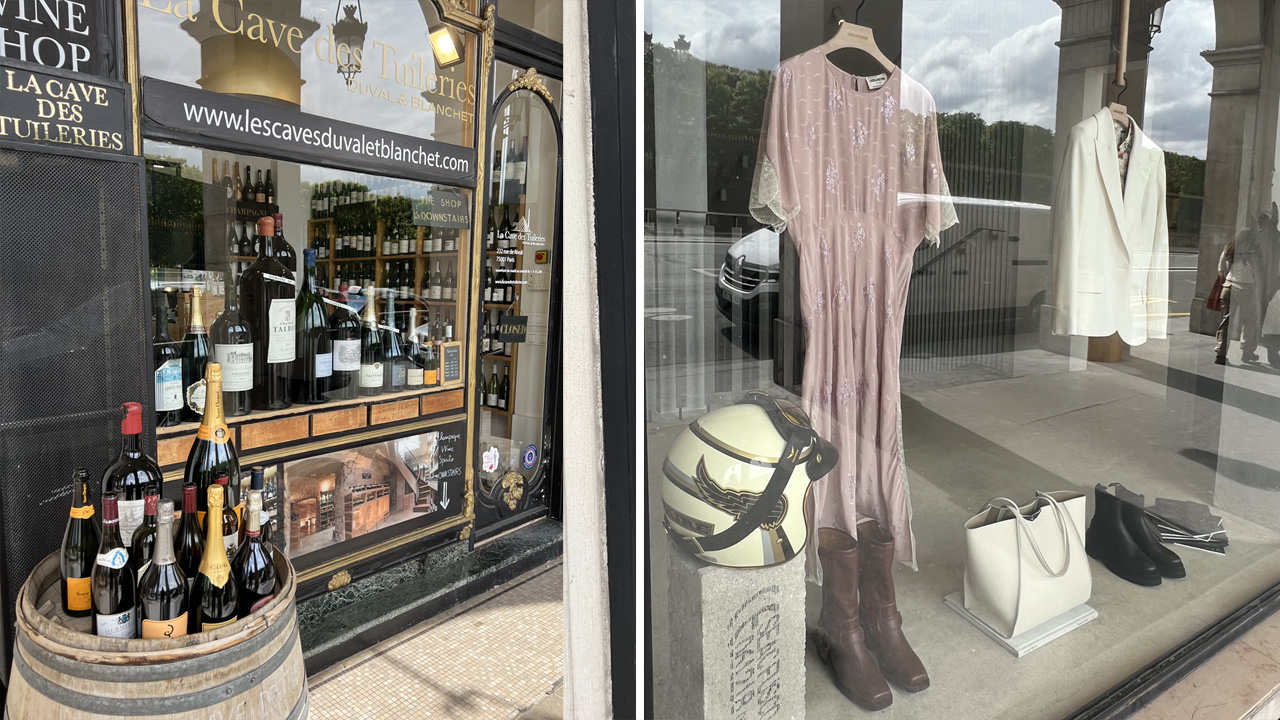
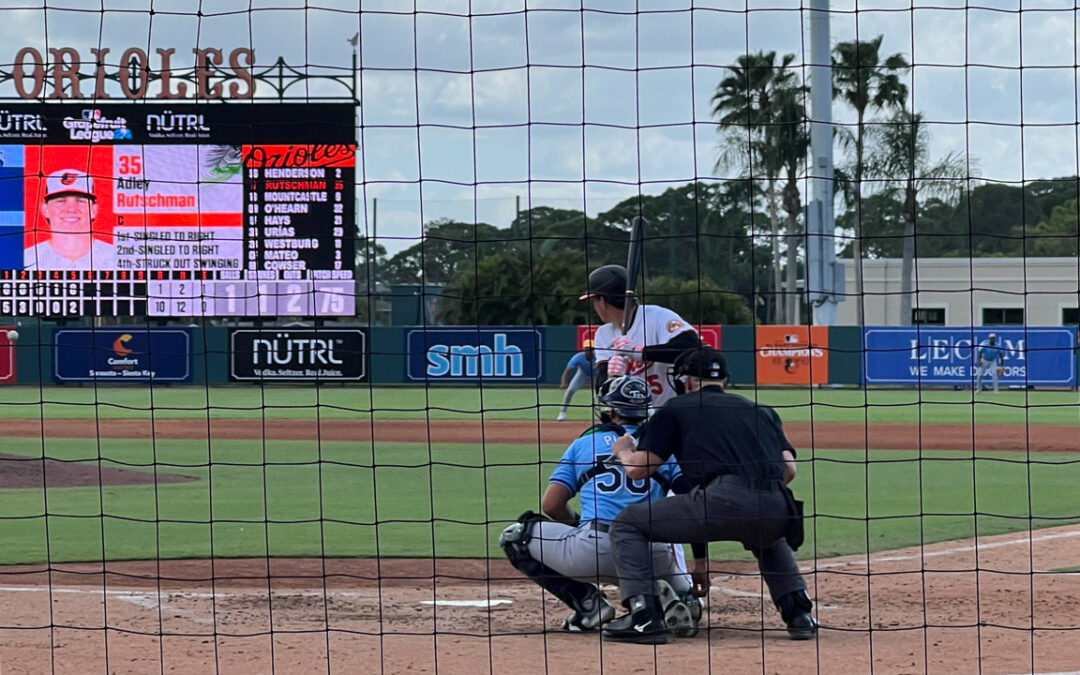
by Robert Bowie, Jr. | Mar 26, 2024 | Featured, Personal, Travel
Several weeks ago, my son and I went to Orioles spring training in Sarasota. I was careful to take lots of pictures, but after our last game it was odd how my thoughts unexpectedly returned to a trip I had taken earlier this spring. I was on a tour that followed where civil rights activists had marched 60 years ago from Selma to Montgomery, Alabama in March of 1965, where they were mercilessly beaten as they tried to cross the Edmund Pettus Bridge.
This abrupt transition probably did not take place for the reasons that you may imagine.
The Orioles played well and won most of the games that we attended. No, it was something other than that.
It was about living rather than photographing life, and what gets lost and what gets saved.
The Ed Smith Stadium, where the Orioles are encamped for spring training, holds less than 7,500 people. It is like watching Little League compared to Oriole Park in Camden Yards in Baltimore, which seats about 46,000.
The ushers that take you to your seats are all Baltimore retirees, snowbirds bright with their orange uniforms and big smiles. It is magical. The team prepares for the future in a library of memories in the Florida sun.
Our first game, we sat behind home plate and watched the field being lined as the seats filled up around us. It reminded me of when my children were young and we would go to minor league games in Frederick, or even to see the Bowie Bay Sox.
I’ve got the pictures to prove it.
Sitting behind home plate in the afternoon sun, we were up so close we could see how a 90-mile-an-hour fastball looked and sounded when it snapped into place in the catcher’s mitt.
The second game we were behind the Orioles’ dugout. You could see the faces of the players and read their expressions in a way that big league baseball cannot reveal on TV. The cell phones were all focused and the cameras were taking pictures.
Every other day, when the Orioles were traveling, we went to the beach. It was worthless to try to photograph and capture the enormity of going to the beach. The sand was bedroom slipper soft, and the sky was bright blue and huge. Shore birds flocked and fought for food scraps as people packed up, left the beach and went home. You just had to experience it with the sound of the waves and the bickering of the birds.
A photograph could not have captured the environment for memory. Without context, it was all too big and undefined to be described.
The night before we went home, we chose seats by the left field fence at the foul line.
We sat next to a young boy who desperately wanted to catch a baseball in his glove, which he kept squeezing and squeezing to our left. My son, who is a college football coach and had been a fourth-grade teacher, knows and loves kids this age.
As the players warmed up in left field between innings, we all got into the act as the players warmed up. We all were trying to get a player to give the young boy a baseball.
My son was quiet for a while until he encouraged the boy to get the ball himself. The boy’s older brother and father grew suspicious. My son encouraged the boy to leave the rest of us behind and go past the left field foul line to where the bullpen was located. There, he could watch the catcher and pitching coach as they were warming up the relievers between innings.
The boy went off on his own but we all could see the interaction between that determined young boy and that aging catcher and pitching coach because it was palpable, but still professional.
On his own, the boy built up his courage and made distant contact with the catcher and ultimately, at the end of the game, the catcher handed the pitching coach a ball, pointed at the boy, and the pitching coach went over and delivered the ball to him. All this was watched with bemused approval and excitement by the local crowd who had followed the little drama.
As we were walking back to the car after the game was over, I chastised myself for not taking pictures as the little story evolved. I remember the amazing joy on that boy’s face as he pounded and re-pounded the ball in his glove as he said goodbye and we went our different ways.
I remember from my tour reading the history of the march from Selma as I started across the bridge and over the brown river with its high banks, which I photographed excessively until I stopped midway across the bridge.
All the photographs I had taken were of a bridge before spring, where there was little life along the shoreline up and down the river. All of a sudden, I stopped photographing, and just looked and felt the river flowing beneath me. I imagined what the crowd must’ve felt with the locals and their law enforcement ready to beat the daylights out of the marchers if they moved a step further and they did.
I go over those photographs now, and I don’t catch the event the way I remembered it by looking at it and avoiding the photograph. I feel the same way about seeing that boy pounding that ball in his glove and smiling as we parted. Without context, it was all too big and undefined to be described. The memory may fade, but because I didn’t take the photograph, I saw it and the experience is still alive in me.
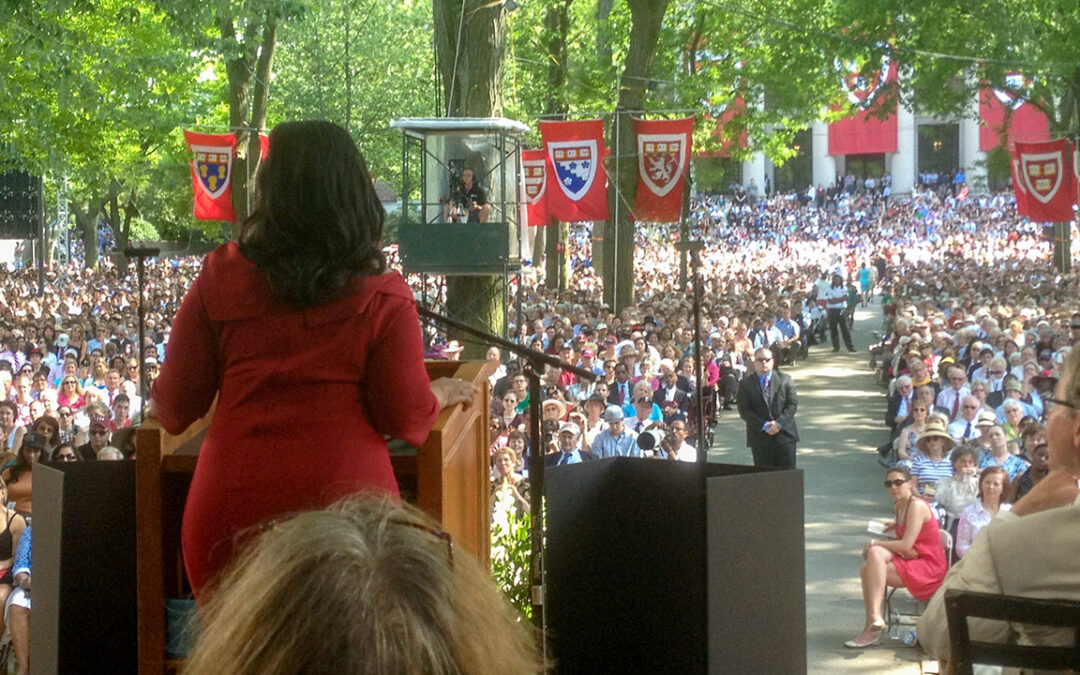
by Robert Bowie, Jr. | Mar 19, 2024 | Featured, Personal
Perhaps it was always just a place in time but, for me, it was the reality of my youth. Its boundaries were Harvard Square to the east, my home on Coolidge Hill with Mount Auburn Cemetery and Cambridge Cemetery to the north, two schools — Shady Hill and Browne & Nichols — to the west, and the Charles River to my south, but all of this was lived in the shadow of Harvard University during the Kennedy years and later the Vietnam War.
I was all in. I was a townie from birth. The athletes on the football and hockey teams were my rock stars, and the professors would take time off from the university to advise United States presidents who were graduates.
If you were fortunate to be admitted, I believed you were blessed for life and, starting with your freshman year, you would be offered an education unequaled anywhere else in the world.
It took me several expulsions, numerous worthless summer schools with worthless speed reading classes if you were a dyslexic, a condition that, for me, went diagnosed for years. All in all, it six years but I finally got through high school.
Anyway, I was determined to get into Harvard.
The Cambridge School of Weston, a progressive school in the suburbs of Boston, took me in but required that I repeat 11th grade and start working with Mr. Johnson, a trained reading teacher, who convinced me to finally take an IQ test and start fresh with the alphabet. When I asked, he smiled and he told me, “Yes, you can go to college.”
I immediately packed up my report cards and went to The Harvard admissions office, where I announced that my problems would soon be solved and I would be going to Harvard. I met with one of the admissions officers, Deke Smith, who went over my report cards, then looked up at me inquisitively and said, “You have never gotten anything better than a C+.” I was ready for him, and responded, “Well, they take 20 points off for spelling.”
He gently said that I would have to be president of my school, president of the literary magazine, as well as president of the New England Student Government Association, which encompasses all New England prep schools and their student governments. In hindsight, I’m pretty sure I was being offered the door, but I didn’t know that.
My senior year I went back to Mr. Smith and informed him that I had accomplished those three goals, and he looked at me sort of long and hard and apologized. “I did not mean to lead you on, but all we do here is read books and write papers. I don’t think you could survive.”
I applied anyway and was rejected.
I went off to a wonderful school in Ohio, left the campus dorms, rented an apartment in the town and went underground. In September of 1970, I was in a high-speed motorcycle crash, which killed the driver, my friend. I spent the next several months hanging from the ceiling in a pelvic sling in several hospitals until I ended up back in Boston and Cambridge, where I started to move again in wheelchairs and on crutches.
I had a moment of genius.
I went back to Mr. Smith at the admissions office and told him that I would not be able to go back to school that spring and hoped he would let me be a “special student” at Harvard so I could take one class and get credit for it when I returned to Ohio the next year.
He was shocked to see me again but remembered me. He recollected that I had surprised him the last time we met when I had accomplished all of his goals, including being president of the New England Student Government Association when, the year before, the Cambridge School of Weston was not even been a member. He reiterated also that I might survive with one class because, as he had said, “All we do here is read books and write papers.”
I got my student ID and realized I was inside the walls and I was living my plan.
I signed up for five classes, not just one, and told my mother that I would do all the research because I had nothing better to do than go to the library on crutches, but I asked her would she type my papers to avoid the spelling issues. She laughed and agreed and I went to work.
I did nothing but work and sleep and go to class and work for that entire spring semester. My one fear was the Blue Book hourly exams where I would have to write out my answers and reveal my spelling issues. I expected I would lose 20 points for spelling. When I got the Blue Book back, there were red marks all the way through it. But about two-thirds of the way in they stopped and at the very end, in red pen, was “You know your stuff but your spelling is atrocious. A-.”
I didn’t stop celebrating for a week.
After I got my report card, I went back to Mr. Smith and showed him I had gotten all A’s and B’s except for one C+, which then put me at least in the middle of the class.
He looked like a guy who just had his pants pulled down. I told him that I would be applying as a transfer student for admission the next year, then smiled at him and left.
He was defenseless.
Several months later, I got the fat envelope. I proudly walked into my parents’ bedroom as my father was reading in the late afternoon on the bed, and I told him I just got into Harvard. He smiled and offered congratulations then went back to reading. It was not his ambition, it was mine. I went to the kitchen to tell my mother and we, in fact, celebrated.
In 1973, I graduated with honors. Fifty years later at our 50th reunion, I met classmates who I had never met before and, only then, felt that I finally fit in, even though I did not qualify for admission. I thought I had justified my acceptance and graduation because I had loved that education so much!
That school gave me a chance that others wouldn’t. That school looked deeper into me than all the other schools, other than the Cambridge School of Weston, ever had. I felt for the first time I was one of them and worthy to be one of their classmates.
I live in Maryland now, as I have for years, but I really am very much still that Cambridge townie. Only weeks ago, when we were at Oriole spring training together, my son looked at me very seriously and asked, “Are you actually a closet Red Sox fan?“
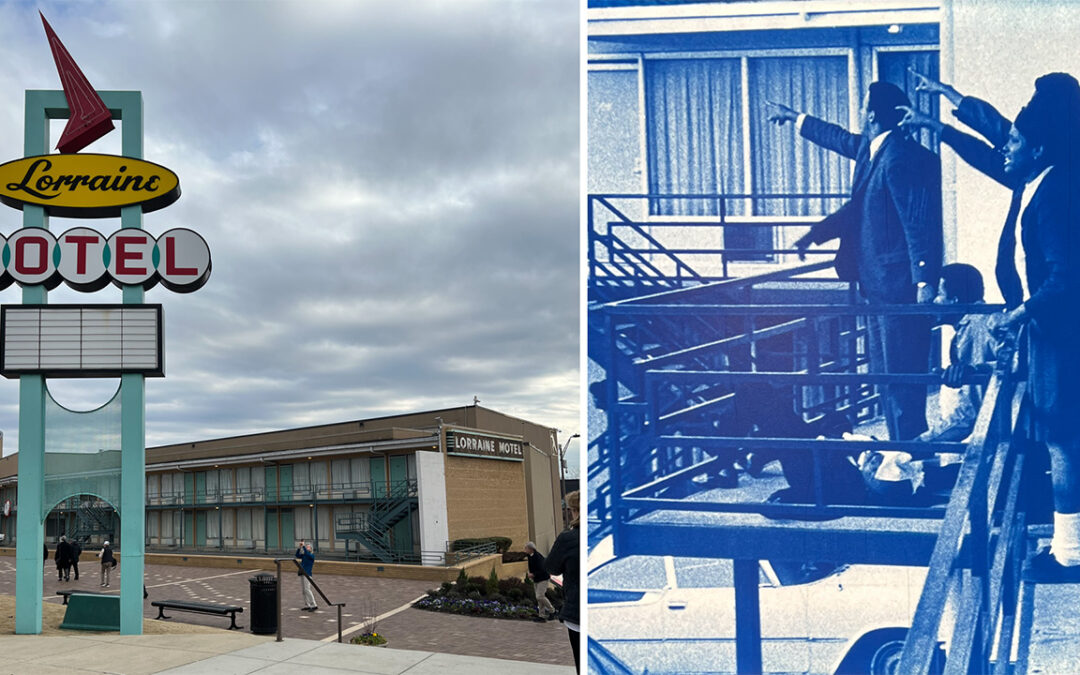
by Robert Bowie, Jr. | Feb 27, 2024 | Featured, People, Personal, Travel
After Ted Williams, Mohammed Ali and Bobby Orr, since I was a boy, I have been looking for heroes. There have been painfully few. The next generations have not, for me, been fertile ground.
I have just returned from a nine-day trip with a group of 15 friends through Mississippi, Arkansas, Alabama, and Tennessee. When I came home, I was shocked to learn of Alexie Navalny’s murder in a Russian prison.
I remembered that after Putin tried to kill him once before, he returned to Russia, only to be imprisoned yet again and ultimately murdered. He risked everything for the love of his country, its people and an integrity that is larger than his life. That is this old man’s kind of hero.
It wasn’t my objective but on the trip, I accidentally found the heroes like Navalny that I have been looking for.
For years, I have wanted to follow the “nonviolent” civil rights movement from the death of Emmett Till in 1955 up to when the Rev. Dr. Martin Luther King, Jr. was killed in Memphis on Aril 4th, 1968.
Yes, I had seen all the pictures, read the books and knew the dates and places as we all have. This movement started when I was in lower school and compounded until it arguably ended with the assassination of Martin Luther King, Jr. when I graduated from high school in 1968.
It was all familiar to me.
But all the histories and research I had done became like reading the script of a play until I walked onto the stage where it had happened. Then I had no escape. It is different when you are surrounded by it. It is different when you become immersed in it.
The Delta blues surrounded us as we passed the crossroads where Robert Johnson is said to have sold his soul to the devil, then parked down the road near Baptist town to walk near where he had been laid to rest.
Much of the Mississippi Delta, our guide at the front of the bus informed us, is owned by eight families.
For hour after hour, the low flat land passes by, with row after row of cotton plants as far as the eye can see on both sides of the road.
Finally, we left the two-lane road from Jackson, Mississippi and traveled down a dirt road to a big house with five or six little cottages next door to it. These are the houses for the families of the tenant farmers who live there surrounded by their work, earning an annual income of around $8,000 a year — that is, before they paid their rent.
On the bus days later, I tried to better understand the famous 1957 picture of young Elizabeth Eckford as she tried to integrate Little Rock Central High School while screaming white people threatening her 67 years ago. Days later, I met her — now in her 80s — as she sat quietly in front of us and answered questions across from where it had all happened.
She said her parents were determined not to back down and they would not talk about it. She said it had taken her almost 40 years to come to grips with what had happened to her in that one day, and for the remainder of the school year, day after day, as she withstood catcalls and being shoved into lockers as she walked the halls.
That little girl in the picture with the sunglasses on, holding her books alone and determined, gives no evidence of the damage that was done to her, which had stayed with her for so long.
It was much the same with the picture I had seen of the cluster of black men in Memphis as they were all turning and pointing in unison as Martin Luther King, Jr. lay at their feet on the balcony of room 306 of the Lorraine Hotel. The hotel has been turned into a much bigger museum, with a plate glass wall preserving the hotel room that these men had left to talk to friends three stories below. It is now forever frozen with the shades all drawn.
I was not ready for 14-year-old Emmett Till’s final journey down from Chicago to visit family in Mississippi to the candy store where he whistled at a white girl. His two assassins had tracked him down three days later and extracted him at gunpoint from his relative’s house to be beaten beyond recognition and dumped in the river. Days later, he was fished out to be buried back home in Chicago in an open casket.
It all rushed at me hours later, when I found myself in the courtroom where the two men were exonerated in 67 minutes by an all-white jury who said they had a ten-minute Coke break to extend the deliberations. I was sitting in the seat of juror number six, right across from the witness stand where Emmett’s mother had testified in tears.
After I opened the news when I got home, Navalny’s murder drove me back to that trip.
I found heroes in many of the locations we visited. In the Mississippi Civil Rights Museum, those heroes were in the records of the hundreds of lynchings, including many who could not be identified.
There are names we all remember, of course. They were committed to their country and to peaceful change despite the daily risk they might be killed. Martin Luther King, Jr., in his “I’ve Been to the Mountaintop” speech, said he could see the promised land, but perhaps he would not be there with them when they entered it. Soon thereafter, he was killed.
Medgar Evers, who was shot from across the street at midnight, had trained his children to run to the bathtub and hide whenever they heard gunshots, because it was the only place they might be safe from a high-powered rifle.
Medgar Evers was killed by a high-powered rifle bullet that went through him, through the front window of his living room, through the wall of his kitchen, and then lodged in the refrigerator.
These people died to advance the cause of freedom. Let’s remember them as we move toward an election that could determine how free we really are.
The night I returned, after I unpacked and turned out the light and set the alarm for an early breakfast, I thought about the people who I had met and the surroundings that had given old history a new life. I went to sleep thinking of those people as little candles where I could warm my hands, little flickering lights burning in the dark.








